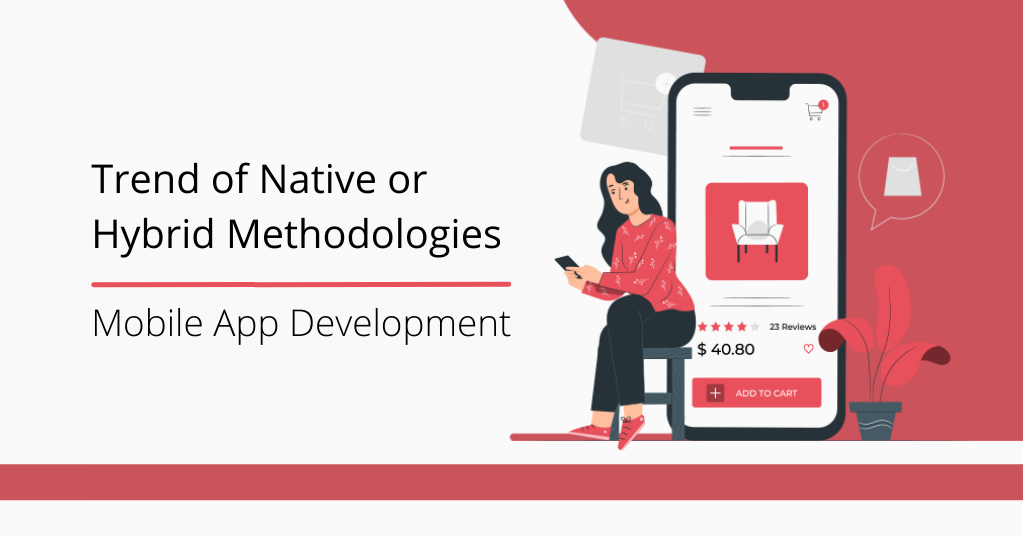There are a variety of approaches that may be used to provide consumers with a distinctive mobile experience. It is possible to develop mobile applications using a variety of ways. Each project has its own set of requirements and goals, and as a result, each project’s strategy is unique. We have technology that aid us in achieving all of our goals and objectives. But the more important issue is which one to choose and when to do it. Of course, you already know the answer that it is dependent on the situation.
The native app development technique standard in the Mobile app development company USA. It provides a one-of-a-kind and outstanding user experience. However, the time to market is much longer than with the other two techniques. It also gives a large amount of potential development space. Pilot app projects gain significantly from hybrid app development since less emphasis is placed on user experience and performance because it is released to the market more rapidly. The cross-platform is the link between the other two ways, and it is the best way to pick between them. The UX and performance are comparable to the Native method, but you will save money and achieve greater time efficiency.
This blog article will provide in-depth information on the differences between designing mobile apps using native or hybrid methodologies.
It is predicted that the yearly number of app downloads globally would reach 299 billion by 2023, an increase from the expected 247 billion annual apps available in 2020.
What are their finest characteristics, and when should you use them? Let’s have a look and see!
What is Native App?
Native applications are those that are developed particularly for a given operating system by using platform-specific programming languages.
When it comes to developing applications or software that must be used on certain devices and mobile application platforms such as Android and iOS, native app development is the approach to use. With native app development, developers rely on the programming language that is native to the operating system to create apps that are optimised for a specific platform—whether it is a desktop computer, a smart TV, a smartphone, or any other advanced gadget that is currently being used in the digital space.
Benefits of Native App
- When it comes to performance, native applications are the best
If a native mobile application is developed, the app is designed and optimised for a certain mobile platform. Consequently, the application exhibits an unusually high degree of performance. Native applications are very quick and efficient since they are created specifically for the platform in question and are compiled using the platform’s core programming language and APIs. As a consequence, the application is much more effective. The app is stored on the storage device, enabling the programme to take use of the device’s computing power. Users are navigating through a native mobile app since the data and graphic components have already been saved on their phone, resulting in speedy load times for the app.
- More Safe
Various web browser and various hardware including such JavaScript, HTML5, and CSS are required for web applications. Creating a native mobile application is an excellent method to provide your consumers with dependable data security.
- Excellent user interface and user experience
Designing an app only for a single operating system provides various advantages in terms of user interface and user experience (UI and UX). From a technological standpoint, it will not be necessary to adjust the screen resolution of the visuals to meet the needs of different devices. As a result, you will not have to worry about it.
What is Hybrid App?
A (hybrid app) is a software programme that incorporates features both of web pages and web applications in one software package. A hybrid app is simply a web application that has been wrapped in a native application shell. Following its installation from a local storage device after being downloaded from an app store, the shells is able to link to whichever abilities the portable device offers using a browser that is included in the app. The browser and its plug-ins are only visible to the end user since they are running on the back end.
- Low development costs
Businesses will save money because of the unified creation of hybrid mobile applications, which eliminates the need to spend separate funds on developing numerous versions of apps for multiple platforms. Instead, hybrid frameworks enable developers to create a single version of the code while also writing and maintaining separate code bases for different platforms.
- Innovative concepts
Ordinary web apps do not communicate with the device’s operating system or built-in environment. They are not as intelligent as today’s advanced programmes and are unable to accurately replicate highly polished native applications. Hybrid apps are snazzy and complex because they skilfully integrate the device’s operating system with its natural capabilities while incurring no additional expense.
- Shorter timeframe for development
When compared to native development projects, hybrid development projects tend to move more quickly, particularly if you would normally have to design two separate native applications for the same purpose. Because you’ll be double your burden as you construct and tweak the interface, concurrent development is often considered impracticable.
Bottom Line
It’s critical to collaborate with app developers that can bring your concept to life quickly and efficiently at a reasonable cost. Outsourcing your application development is an excellent approach to test your product without having to commit to recruiting permanent in-house personnel. Collaborating with an experienced mobile app design and development team is also an excellent approach to ensure that your mobile app development project seems to be an organic progression, rather than a big leap into new terrain.



